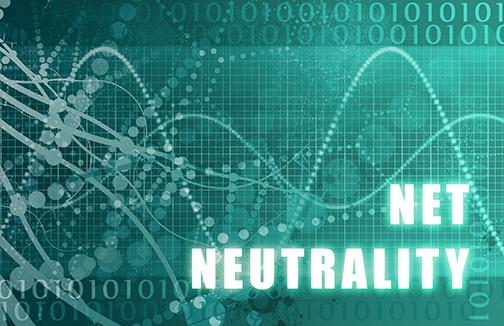Net neutrality is the equal sharing of data on the open platform of the Internet, and it allows information and communication to flow freely.
The Federal Communications Commission released a plan last May that would allow Internet providers to charge users to access information faster, creating so-called “internet fast lanes.”
After public outcry, the plan was retracted and on Feb. 4, chairman, Tom Wheeler announced that he will base new net neutrality rules on Title II of the Communications Act. But does this change much?
Abolishing net neutrality will pave the way for corporations selecting what news the general public consumes. Corporate America could potentially pay off Internet providers, and spoon-feed information to the public, as well as block websites.
Those who can afford it will set the corporate agenda, but think about this agenda being set by powerful politicians and lobbyists.
The Internet, particularly social media, plays a large role in revolutions and ending net neutrality. Ending net neutrality could make it much harder for citizens to meet with ideas of change. It could possibly even silence them.
The activists that started the Arab Spring Revolution of 2010 used Twitter as a way to congregate.
“After analyzing more than 3 million tweets, gigabytes of YouTube content and thousands of blog posts, a new study finds that social media played a central role in shaping political debates in the Arab Spring,” Catherine O’Donnell of University of Washington’s UW Today said.
If we, as a society, view the unrest after the killing of Michael Brown in Ferguson, and now the murder of Deah Barakat, Yusor Abu-Salha and Razan Abu-Salha in Chapel Hill, one can only hope that America is on the brink of change. Whatever protests may rise, it’s safe to assume social media will be utilized in the process.
In the event of net neutrality being gone, a political party with influence over Internet providers could potentially block out or slow down the loading time on the protestor’s webpages. The censorship of citizens can and will become a problem.
“This country was founded on those rights and in acknowledgment of our basic need for our speech to be delivered without discrimination,” Lauren Wilson of Save the Internet said. “Safeguarding free speech rights cannot be left to the whims and bottom lines of self-interested corporations.”
With corporations controlling Internet access, they are the ones who decide what information is important and who gets to report that information. People with enough money can put themselves on the fastest working pages while the little guys will be left in the dust without getting the chance to be heard.
With the Internet being so engrained in today’s society, it is rare to find a person without a smartphone, or off of social media platforms. This is how people are connecting, and controlling it could easily be a direct route in controlling people’s opinions and ideas.
Though the FCC is still looking to find a way to end net neutrality, President Barack Obama pleads for them to protect it.
“We cannot allow Internet service providers to restrict the best access or to pick winners and losers in the online marketplace for services and ideas,” Obama said. ‘That is why today, I am asking the Federal Communications Commission to answer the call of almost 4 million public comments, and implement the strongest possible rules to protect net neutrality.”
Having the president as an ally for the protection of net neutrality is vital. Obama asking the FCC to revise their stance may have a larger impact now, but soon his term will end and consequently, so will most of his influence.
The fight comes down to society. Understanding the facts behind net neutrality will become the determinant in people’s care to take action. Even as an independent agency, the FCC will have to listen if enough people stand up, or sit down and type. The consensus they’ll hear is that the Internet should stay open.










